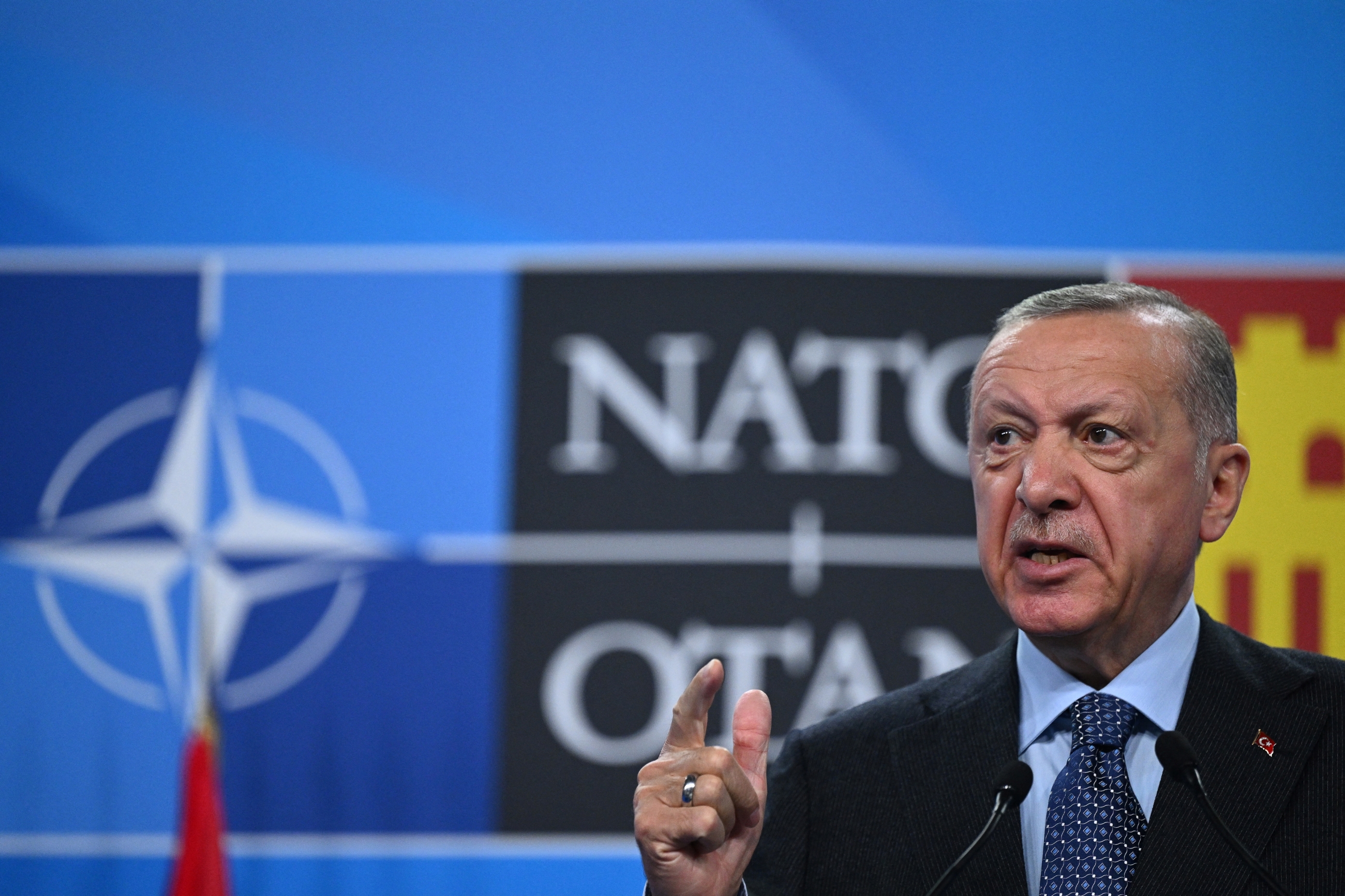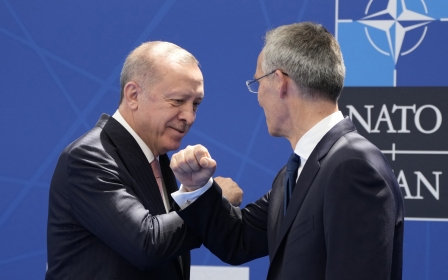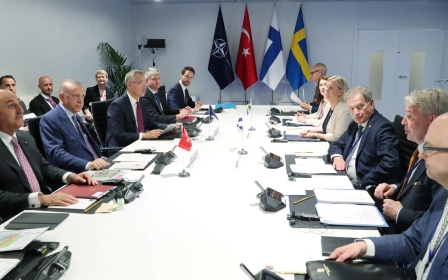Erdogan says Turkey can still block Sweden, Finland's Nato bids

Turkish President Recep Tayyip Erdogan has said that Sweden and Finland must follow through on a new accession deal with Ankara, or Turkey could still block their bid to join Nato.
Erdogan issued his blunt warning at the end of a Nato summit on Thursday, where the US-led alliance formally invited the Nordic countries to join the 30-nation bloc.
The two nations dropped their history of military non-alignment and announced plans to join Nato in response to Russia's invasion of Ukraine.
Their bids were headed for swift approval until Erdogan voiced concerns in May over the countries’ support for Kurdish militant groups. In addition, the Turkish leader demanded they lift arms embargoes imposed in response to Turkey's 2019 military incursion into Syria.
A 10-point memorandum signed by the three sides on the sidelines of the Nato summit on Tuesday appeared to address many of Erdogan's concerns. Turkish officials say they will seek the extradition of 33 "terror" suspects from Sweden and Finland as part of the agreement, although the deal did not include specific references to extradition.
New MEE newsletter: Jerusalem Dispatch
Sign up to get the latest insights and analysis on Israel-Palestine, alongside Turkey Unpacked and other MEE newsletters
The 33 individuals named by Turkey are all accused of being either outlawed Kurdish militants or members of a group led by the US-based preacher Fethullah Gulen, who Turkey blames for a failed 2016 coup.
Erdogan also won praise from US President Joe Biden at the summit, who said the US supports the sale of upgraded F-16’s to Turkey, which Ankara has long pushed for.
Yet Erdogan told reporters at an impromptu press conference held as the summit ended that the new memorandum did not mean Turkey would automatically approve the two countries' membership.
"First Sweden and Finland should carry out their duties and those are in the text...But if they don't, of course it is out of the question for the ratification to be sent to our parliament," he added.
New countries' applications must be approved by all members and ratified by their respective parliaments.
"If they fulfil their duties, we will send it to the parliament. If they are not fulfilled, it is out of the question," he said.
But Erdogan’s comments on Thursday also appeared to increase the demands placed on Sweden by claiming the country had "promised" Turkey to extradite "73 terrorists".
Erdogan did not explain when Sweden issued this promise.
Officials in Stockholm said they did not understand Erdogan's reference but stressed that Sweden strictly adhered to the rule of law.
"In Sweden, Swedish law is applied by independent courts," Justice Minister Morgan Johansson said in a statement to AFP.
"Swedish citizens are not extradited. Non-Swedish citizens can be extradited at the request of other countries, but only if it is compatible with Swedish law and the European Convention," Johansson said.
Finnish President Sauli Niinisto said on Wednesday that Erdogan appeared to be referring to cases that had already been processed by officials and the courts.
"I would guess that all of these cases have been solved in Finland. There are decisions made, and those decisions are partly made by our courts," Niinisto told reporters in Madrid.
"I see no reason to take them up again."
Most of Turkey's demands and past negotiations have involved Sweden because of its more robust ties with the Kurdish diaspora.
Middle East Eye delivers independent and unrivalled coverage and analysis of the Middle East, North Africa and beyond. To learn more about republishing this content and the associated fees, please fill out this form. More about MEE can be found here.





